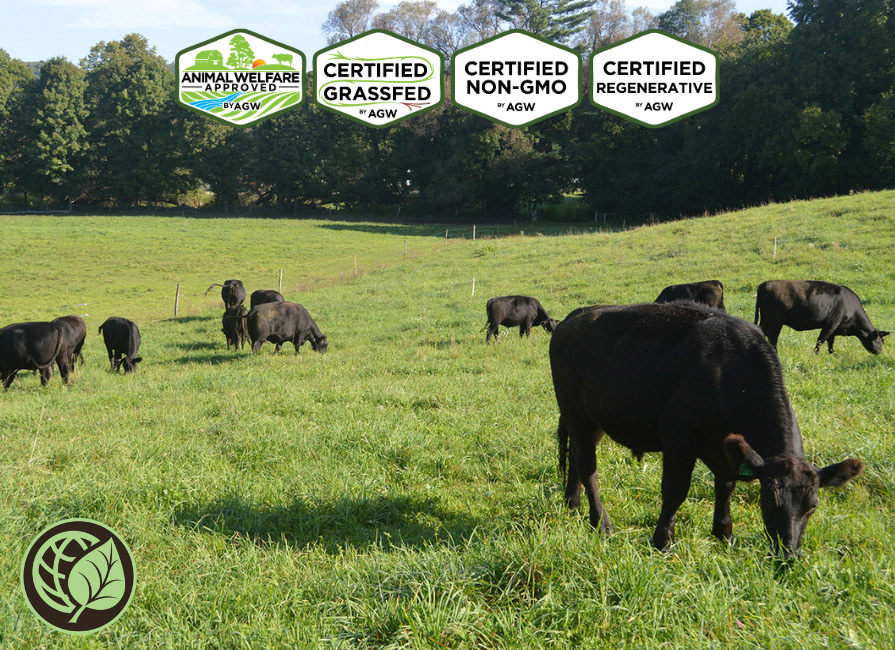One of the key attractions of our Certified Regenerative by AGW program is its practical…
The Dirty Tricks of the “No on 37” Campaign Are Nothing New
Last week, the “No on 37” campaign was called out for allegedly misusing the U.S. Food and Drug Administration’s logo on a campaign flyer opposing the labeling of genetically modified (GM) ingredients in food.
The “No on 37” campaign flyer includes the FDA logo next to a quote (allegedly) from the FDA which states that a GM labeling policy like Prop 37 would be “inherently misleading.”
The clear implication from this flyer is that the FDA stands with the “No on 37” campaign and opposes the labeling of GM ingredients in food. Yet according to a Reuters report, FDA spokeswoman Morgan Liscinsky has clearly stated that the agency had made no such statement and had no position on the initiative.
It looks like the FDA will now investigate whether the use of the logo was a criminal act, but the problem is that this won’t be resolved until well after the election. By then, the damage will have been done: some people who read the flyer will have no doubt believed that the FDA is opposed to the labeling of GM ingredients in food.
Was the allegedly improper use of the FDA logo and quote on this “No on 37” flyer a calculated act or a simple mistake? Well, one thing is for sure: This isn’t the first mistake of this kind.
In October, the Academy of Nutrition and Dietetics publicly criticized the “No on 37” campaign for inaccurately claiming in its campaign materials that the Academy had concluded that GMOs were safe. The Academy’s president stated that “We are concerned that California’s voters are being misled to believe the nation’s largest organization of food and nutrition professionals is against Proposition 37, when in fact, the academy does not have a position on the issue.” “Whoops,” said the “No on 37” campaign. But the damage was already done.
One of the “No on 37” campaign’s first TV adverts had to be pulled for a similar error. The advert featured the campaign’s well-known spokesperson, Henry I. Miller, identified on the screen as “M.D., Stanford University, founding Dir. FDA Office of Technology.” Yet it turns out that Miller is not a Stanford professor at all: He is a research fellow at the Hoover Institution, a right-wing think tank that’s simply located on the Stanford campus. As leading ag blogger, Tom Philpott, points out, Miller is also a well-known spokesperson for industrial chemical lobby and an outspoken climate-change skeptic. Stanford University demanded that the misleading ad was changed in order to reflect Miller’s true status, which it duly was. But the damage had already been done.
Dirty tricks aren’t simply limited to the “No on 37” campaign. Back in 2011, I wrote about the unbelievable fact that that the diplomatic cables released by Wikileaks revealed that U.S. diplomats were actively working with GM companies such as Monsanto in clandestine moves to undermine any European Union country that opposed GM crops. It’s the kind of fanciful plot that you’d expect to see in a James Bond movie – but this was for real. So is it any wonder that we’re seeing similar dirty tricks to undermine efforts to provide U.S. consumers with fair and transparent labeling of foods containing GM ingredients?
Even if an internal FDA investigation eventually proves that the FDA logo was misused – and a criminal act therefore did take place – it’s widely acknowledged that the end result is likely to be nothing more than a large fine. Now, if there is one thing that the “No on 37” campaign can say with complete honesty, it’s that they have ready access to literally millions of dollars, all kindly donated by the world’s largest biotechnology and pesticide producers and food industry leaders.
The “No on 37” campaign has amassed a combined war chest of over $46 million to spend on a barrage of TV and radio advertisements designed to pummel the public into voting against Proposition 37. Indeed, Reuters claims that the total money spent on the “No on 37” campaign is already one of the largest figures ever spent on a California ballot initiative. Looking at the leading funders, it’s like a “Who’s Who” of agribusiness and food industry giants: Monsanto ($8,112,069), DuPont ($5,400,000), PepsiCo ($2,145,400), BASF ($2,000,000), Bayer ($2,000,000), Dow ($2,000,000), Syngenta ($2,000,000), Coco-Cola ($1,690,500), Nestle ($1,461,600) and ConAgra Foods ($1,176,700) have all contributed huge sums of money to blow the campaign to label GM ingredients in food out of the water.
The core assertion of the “No on 37” campaign is that GM labeling will significantly increase the weekly shopping bill for hardworking Americans – a particularly poignant message given the current economic climate. But we know from experiences in Europe that there were no changes in food costs following the labeling of GM food – despite similar “doom and gloom” claims from the biotech lobby. According to David Byrne, who was the European Commissioner for Health and Consumer Protection of the European Parliament, “When the current labeling regime … was introduced in 1997, it did not result in increased costs, despite the horrifying (double-digit) prediction of some interests.”
I want to make it very clear that I am not opposed to the science of biotechnology. Indeed, I believe that biotechnology has a vital role to play in helping us to select and breed better crops, but through non-risk technologies like Marker Assisted Selection, which does not involve or produce GM organisms. No, my problem is how the science of biotechnology has been hijacked by corporate interests, and how the wholesale rush to patent plant genes as the intellectual property of a handful of multi-national corporations is now placing the control of global food production into their very hands.
Read the above list of corporations that are bankrolling the “No on 37” campaign once again: Do you really think that these organizations have our interests at heart, or are they simply seeking to protect their own vested interests? We all know that the tobacco lobby fought tooth and nail to protect its market, despite overwhelming evidence that they were in fact killing their customers. In an infamous news clip from 1971, Joseph Cullman, CEO at Phillip Morris, says “I believe that they [cigarettes] have not been proven to be unsafe… ” When confronted with evidence that babies who were born to women who smoke are smaller, Cullman explains that “they’re just as healthy as the babies born from women who do not smoke – and some women would prefer having smaller babies.”
Forget claims of wanting to “feed the world” or “protect the environment.” The dirty tricks, semantics and subterfuge used by the biotechnology lobby today are the very same as those used by the tobacco industry in the 1970s. The reality is that GM crops were developed by corporate giants like Monsanto, Bayer and Syngenta to maximize profits for their shareholders – nothing more, nothing less.
In less than two days, Californians have the chance to decide whether or not they continue to swallow Big Ag’s lies. Vote YES on Proposition 37, and vote for freedom of choice and transparency in the food we eat.



